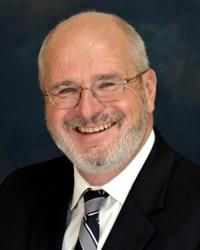A kinder, gentler America
Small moments can say so much.

A chat I had years ago with then Indiana Gov. Evan Bayh has been in my thoughts lately.
It happened in the spring of 1992, not long before the Indiana presidential primary. Bayh and I talked after a press conference in which both he and his fellow Democrat, then Arkansas Gov. Bill Clinton, had talked with journalists.
At the time, Clinton was well on his way to securing the Democratic presidential nomination and, eventually, the presidency.
I had come to the press conference after snagging a ride from the airport with Clinton so I could interview him. It was the first time I’d talked with him. It didn’t take long to realize what a skilled political performer he was as he danced and parried through the interview with the smooth assurance that prompted one admiring biographer to refer to him as “The Natural” and his critics to label him “Slick Willie.”
Clinton demonstrated the same skills in the press conference, moving without any seeming effort from combative testiness to comforting consolation.
Afterward, I walked out with Bayh.
I asked him, more to make conversation than to elicit information, how he saw the campaign shaping up.
He stopped, so I did, too.
He said that the Clintons were friends of his and his wife, the now-departed Susan Bayh. When the Bayhs first had moved into the governor’s residence and Evan was only 33 while Susan still was just in her late 20s, the Clintons had been kind to them, Evan explained.
The Clintons, too, had come to power early. Bill Clinton became Arkansas’s governor when he was just 32, with Hillary only a year younger.
The shared experience of being both young and at the center of a state’s government linked the two couples. They bonded over being members of such a small club.
Bill and Hillary Clinton were friends and fellow Democrats, Evan Bayh explained to me. For those reasons and others, he wanted them to win.
I lingered, sensing there was a “but” coming.
There was.
George H.W. Bush was the incumbent president then. His wife, Barbara Bush, had been friends with Evan Bayh’s late mother, Marvella, whose husband was U.S. Sen. Birch Bayh, D-Indiana.
The two women got to know each other when their husbands, both then young politicians on the rise, arrived in Washington, D.C.
Evan Bayh was just in elementary school then.
“Barbara Bush used to babysit me when I was small,” he told me. “I know she and her husband are good people.”
He paused, then did a small, rueful headshake.
“So, how can I be that upset if the Bushes spend four more years in the White House?”
After we said our farewells, I walked away oddly heartened.
This was how elections in America ought to be, I thought—you hoped for one outcome, but you weren’t crushed if things went the other way.
That 1992 presidential election was rancorous, of course. Presidential elections always are because the stakes are high.
There were accusations of marital infidelity on both sides and broadside criticisms of each candidate’s character and courage.
But it wasn’t the exercise in existential apocalyptic dread that the last three presidential campaigns have been. No one feared that the country would self-destruct or democracy itself would die if their side lost.
The losing candidates didn’t riot or attempt to overthrow the government because the vote didn’t go their way.
In fact, when the Clintons won, Bush’s vice president, Indiana’s own Dan Quayle, offered one of the most gracious concessions I’ve ever heard.
Quayle said that if Bill Clinton and his running mate, then U.S. Sen. Al Gore, D-Tennessee, were half as good at running the country as they were at campaigning, America would be just fine.
That was 32 years ago, not all that long in the life of a grand republic.
Somehow, though, it seems like eons ago.
John Krull is director of Franklin College’s Pulliam School of Journalism and publisher of TheStatehouseFile.com, a news website powered by Franklin College journalism students. The views expressed are those of the author only and should not be attributed to Franklin College.




